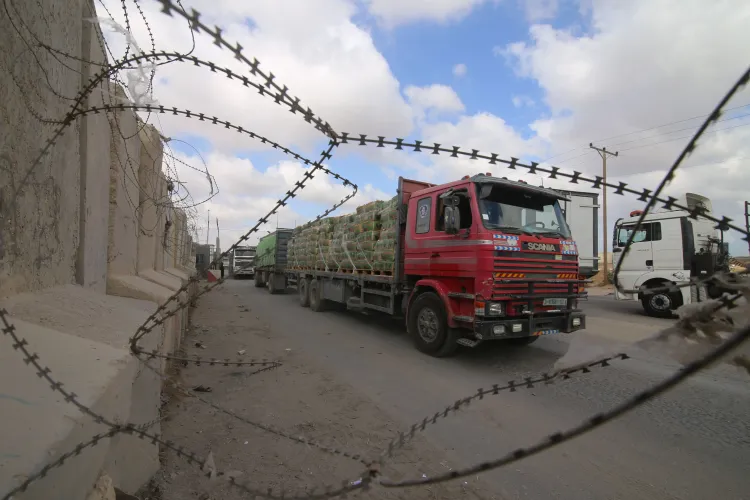Hamas Warns Gaza on Brink of Humanitarian Disaster Due to Ongoing Israeli Blockade

Synopsis
Key Takeaways
- The blockade has led to a catastrophic humanitarian situation.
- 80% of the population lacks access to food.
- 25% of bakeries have shut down.
- 90% of residents are without clean drinking water.
- The health sector is on the verge of collapse.
Gaza, March 18 (NationPress) The media office of Hamas has issued a grave warning regarding the deteriorating humanitarian conditions in the Gaza Strip, as Israel's intensified blockade has now reached its 16th consecutive day, obstructing essential aid from reaching the local populace.
According to their press release, the Israeli blockade has resulted in a catastrophic decline in the humanitarian landscape within Gaza, with 80 percent of the population losing access to vital food supplies due to the halt in aid deliveries.
This crisis has compelled 25 percent of bakeries to cease operations amidst a dire fuel shortage, with further closures expected in the near future, as reported by Xinhua news agency.
The fuel scarcity has also hindered the functioning of wells and desalination facilities, leaving 90 percent of Gaza's residents without reliable access to clean drinking water.
The healthcare system is nearing collapse, with severe shortages of medical supplies exacerbating the suffering of around 150,000 individuals who are sick or injured. The report highlights a rise in cases of malnutrition and anemia, particularly affecting children and the elderly.
The media office has called upon the international community to take immediate action, pressing for increased pressure on Israel to permit the swift entry of humanitarian aid and to lift the restrictions imposed on Gaza.
They also urged Arab and Islamic countries to honor their commitments by working towards ending the blockade, reopening crossings for humanitarian supplies, and holding Israel accountable for the legal and humanitarian repercussions of its actions.
In another statement, Hamas accused Israel of targeting the most vulnerable Palestinians—including the sick, the elderly, children, and individuals with special needs—through the enforcement of the blockade.
The statement further emphasized that the United States must compel the occupying forces to adhere to the ceasefire agreement as signed, rather than escalating the conflict.
Separately, Ismail al-Thawabta, director of the Hamas-run media office, stated that Israeli authorities continue to impose a suffocating blockade on the Gaza Strip by keeping all border crossings shut for over two weeks.
Al-Thawabta noted in his statement that the occupation has blocked over 10,000 aid trucks from entering Gaza and has refused to allow the entry of 850 fuel and cooking gas trucks, crippling the transportation sector, closing bakeries, and disrupting humanitarian efforts.
Since March 2, Israel has barred aid shipments, including food, from entering Gaza following the conclusion of the first phase of the Israel-Hamas ceasefire.










